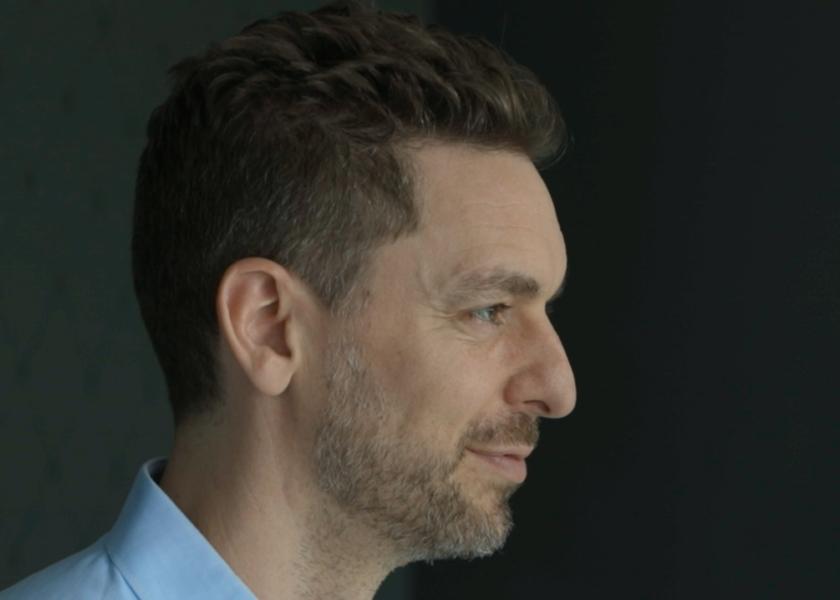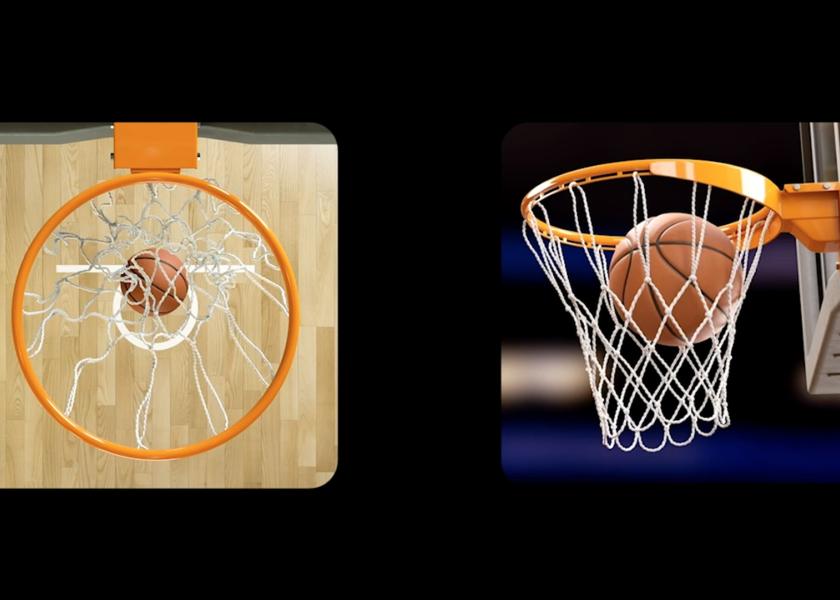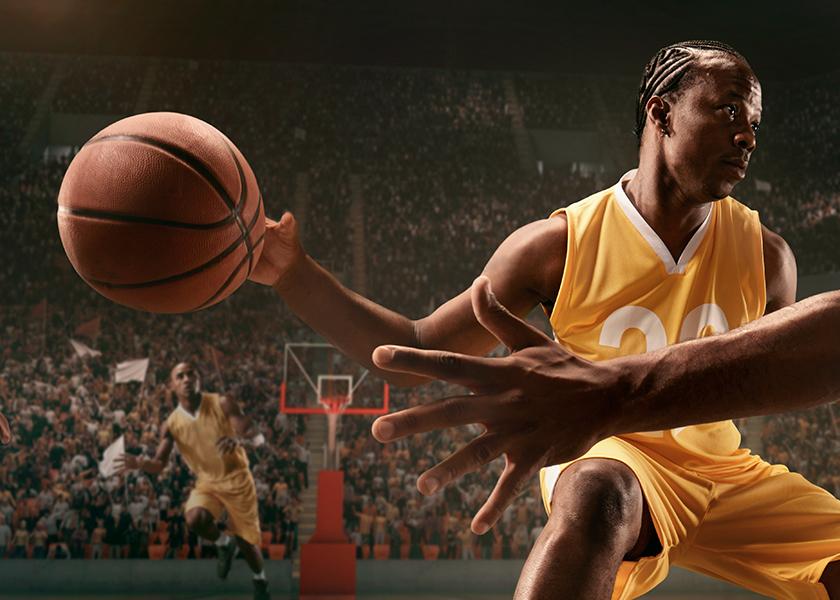Pau Gasol
Everyday success
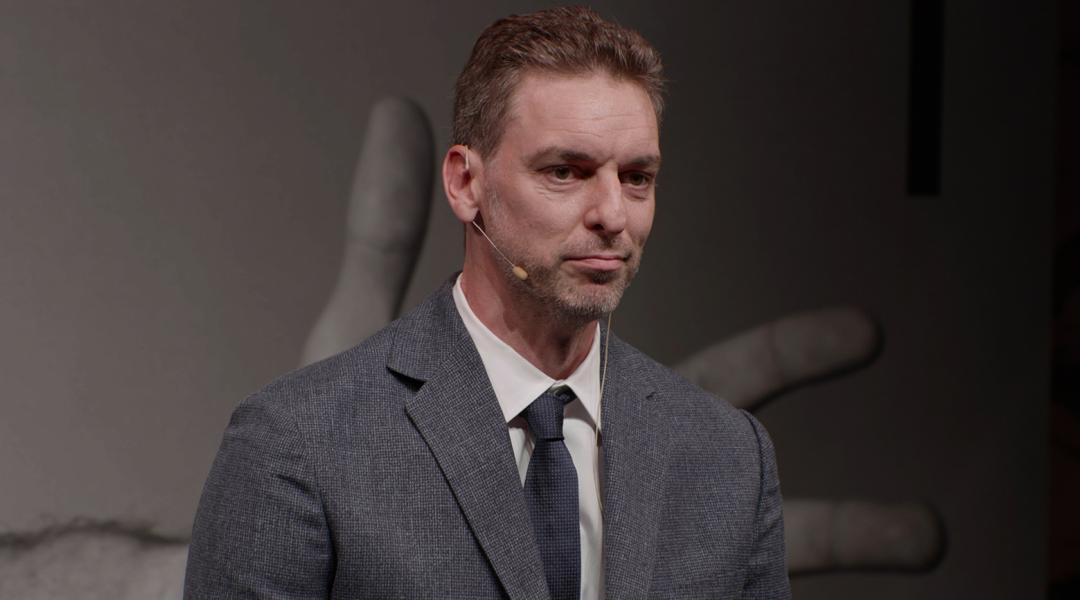
During good seasons and bad, during victories and defeats, during triumphs and moments of uncertainty. In his documentary It’s about the journey, which recently premièred on Amazon Prime, Pau Gasol teaches us that an athlete proves his talent at all times, that you have to learn to enjoy the ride, and that there’s only one silver bullet to achieve success: to live each day as if it were the first.
“This has been an irreplaceable experience. To replace it, it’s impossible. To match it with anything else, it’s impossible.” These are Pau Gasol’s first words in his documentary It’s about the journey, which premièred on Amazon Prime on the 12th of November, in which he looks back at his entire career, following a key moment that became a turning point in his professional career: the injury he suffered at the end of 2018 that drove him away from the basketball court without a clear prognosis. Strong feelings arose within him at that time (uncertainty, helplessness, frustration...) but, at the same time, his desire for self-improvement, hard work, and perseverance played a crucial role in his recovery. There was only one goal on the horizon: to play again and to participate in what would be his fifth and last Olympic Games.
As Pau reveals throughout the film, during this lengthy process, the key objective becomes another: to enjoy the ride, every step of the way. To learn from each victory, but also from each defeat, both on and off the basketball court. This is the real talent that Pau Gasol has shown us after a 20-year career: to apply the motto Every day is the first day to all aspects of his life. Let’s talk about how a winning mentality goes beyond scoring a three-pointer with this Spanish sports legend.
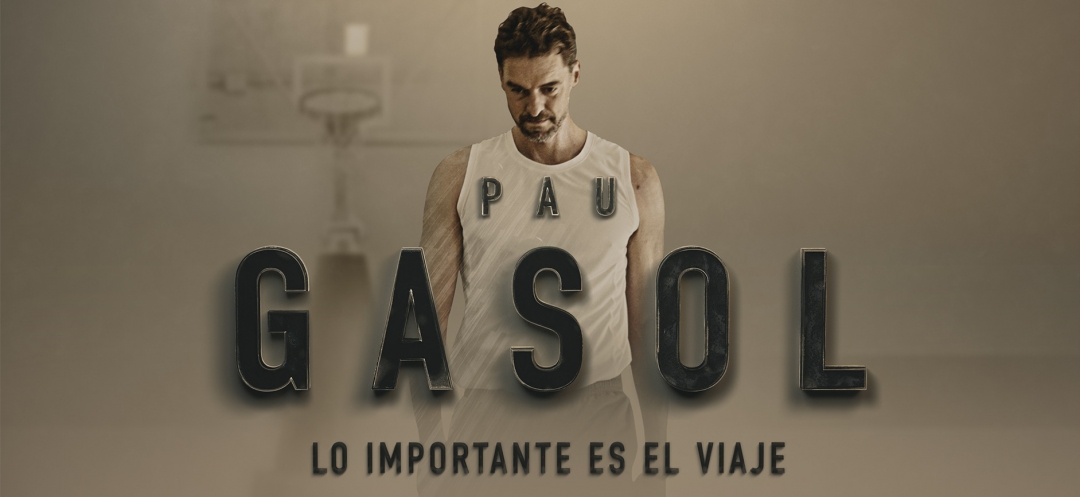
'It’s about the journey' will be available on Iberia flights from mid-December. ©Amazon Prime
In November of 2018, you suffered an injury to your left foot that kept you off the court for many months. This is the starting point of your new documentary. How did that moment feel at the age of 38?
It was a time of uncertainty and lack of information. It was the start of a process that would last more than two and a half years, and I often felt frustrated that my foot was not progressing how I wanted. This injury, that I had surgery on twice, not only kept me from playing basketball —the sport I’ve loved my entire life—, but it also put my future quality of life at risk, even jeopardising time I could enjoy with my family.
How did the idea for the documentary come about?
The complexity of that time led me to kick around the idea for the documentary with my communication and strategy team. I wanted to share that difficult situation and show how I and my family faced it. I think that both my supporters and the press deserved it and the documentary seemed like a good way to explain how I recovered and also how I prepared for the next chapter of my life, including fatherhood. What’s more, I wanted to look back at my career and see the path that led me here.
It’s about the journey also tells the story between your injury and the goal of getting to Tokyo. You did it! Were these Olympics the sweetest because you had the chance to enjoy them, or the sourest because they symbolised your farewell?
These Olympics have been a turmoil of emotions. From being postponed in 2020, which gave me more time to recover, although this meant being one year older, to being drafted by Barça, which gave me the opportunity to prepare and enjoy them. I wouldn’t say there’s been bitterness, but there were a few tears when I played my last match with La Familia, the Spanish basketball team. Even so, there were mostly good feelings: my dream of playing my fifth Olympic Games came true, and I was also selected as a member of the International Olympic Committee (IOC) Athletes Commission, which opens a new chapter in my career. This makes me incredibly happy, and I take it on with great responsibility and commitment.
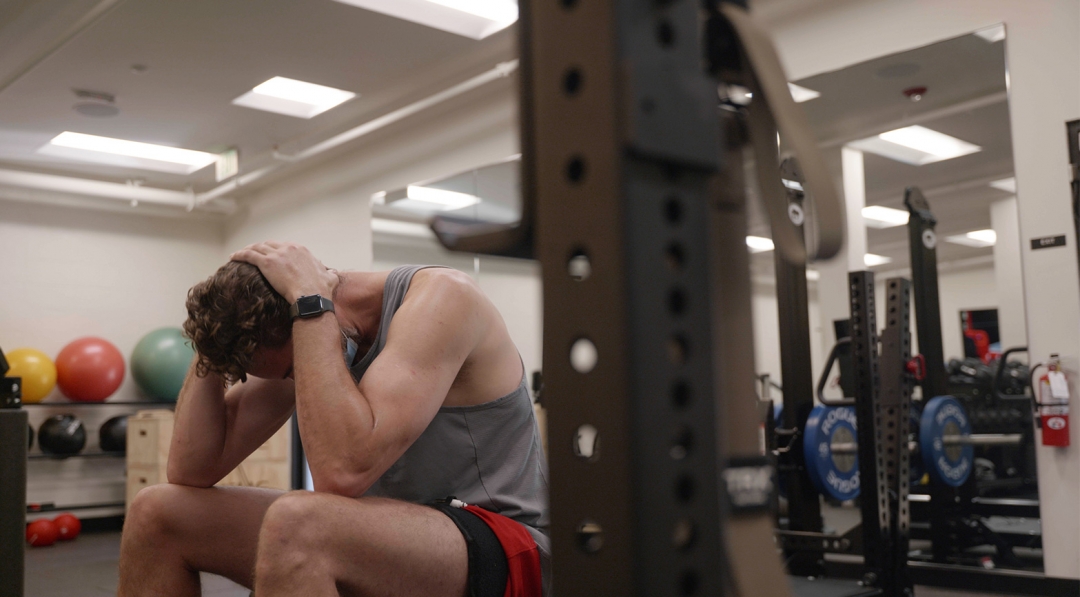
The documentary includes the hardest moments of Gasol’s injury and rehabilitation during more than two years ©Image courtesy of PG Productions LLC
As well as the Olympics, you gave us a last dance at home. What was coming back to Barcelona like after so many years?
It was extremely special for several reasons. Firstly, coming back to the club where I started, as well as my city. It was a shame to miss out on the Palau’s usual enthusiasm due to the restrictions, but I felt the crowd’s affection at all times. Secondly, stepping back on the court after more than two years of being injured. Juan Carlos Navarro, Sarunas Jasikevicius, and the rest of the Barça team gave me a huge opportunity by welcoming me to their ranks and allowing me to enjoy that last dance. Lastly, I had the chance to help the team win a title and for my daughter to see me play. Without a doubt, it will always have a special place in my heart.
“I would like the documentary to inspire people with the desire to improve and grow.”
What does retiring from professional sport mean to a player of your stature? And, above all, when do you know that it’s time to change direction?
Several factors come together in taking that decision. Your physical condition and state of mind, the advice of doctors and personal trainers, family priorities and excitement for upcoming professional challenges (in my case, I have many projects off the court). I wanted to retire while playing, and not because an injury forced me to. I’ve made it and I’m extremely happy.
What has carried more weight in your decision to retire, your own interests or those of the team, the Spanish national team, your family...?
In these types of life-changing decisions, you have to keep in mind the opinions of those you love the most and how your decisions affect your immediate circle. I’ve taken it all into account, as a whole. But, of course, the future of Spanish sports and, specifically, basketball, is more than guaranteed. Younger players are making quite an impression; it’ll be a pleasure to support them from a different role and I’m eager to see them grow.
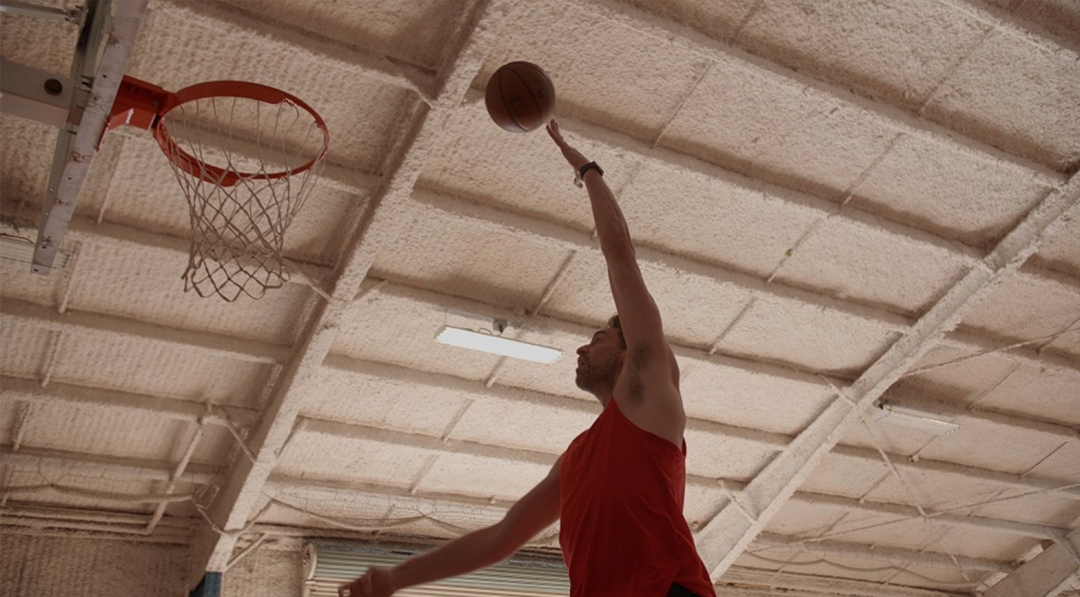
A desire for self-improvement, perseverance, and hard work are the values that inspire Pau Gasol ©Image courtesy of PG Productions LLC
“Sometimes you win, sometimes you learn.” A lesson the pandemic has reminded us all. Is it hard for a professional athlete to accept each moment as it comes?
As it happens, the COVID-19 pandemic has reminded us that there are many things outside of our control. But even during the hardest times, we’ve realised that some things are in our power: our attitude when facing each situation, our behaviour and actions towards others, the teamwork we can build... In the NBA, I got used to dealing with uncertainty (trades, injuries, coach decisions...) and working on Stoic principles or, in other words, being grateful for whatever comes and not letting whatever’s not in your hands affect you too much. This is an extremely useful lesson for all aspects of life.
Throughout all these years in your sports career, what’s been harder: physical or mental conditioning?
I wouldn’t describe them as hard, because both aspects are essential and, when your job is your passion, every effort is worth it. Without a doubt, your body gives warning signs and, when there’s any weakness, physical conditioning can be a challenge. But mental conditioning, which is often less acknowledged or more invisible, is much more difficult to take care of, in my opinion. Probably because there’s less information on and recognition of its importance. Luckily, this seems to be changing and mental health is becoming less taboo and taking up the space it deserves.
“I’m guided by the conviction that everyone can achieve big goals if they’re given the opportunity and the tools to reach them.”
The talent of great athletes is not only measured when they win tournaments or compete, but also when they accept defeat, when they retire, when they say goodbye... Which is the difference between how you manage your talent now compared to 20 years ago?
Although I still have a lot to learn —and I try to keep learning every day—, over the years I’ve developed my ability to accept and manage adversity and, therefore, my emotions. And this has been thanks to my parents and my brothers, who have given me the foundations to face life the way I do. And I’m also really grateful to all the coaches and teammates I’ve had, the books I’ve read, and the people I’ve come across along the way whose wisdom I’ve tried to absorb.
President of the Gasol Foundation, member of the IOC’s Athletes Commission and Global Champion for Nutrition and Zero Childhood Obesity by UNICEF... What guides you and motivates you to keep helping others develop their talent?
I’m guided by the conviction that everyone can achieve big goals if they’re given the opportunity and the tools to reach them. Basketball has given me a fantastic platform that allows me to have a positive impact on people’s lives and motivate them to generate change themselves.
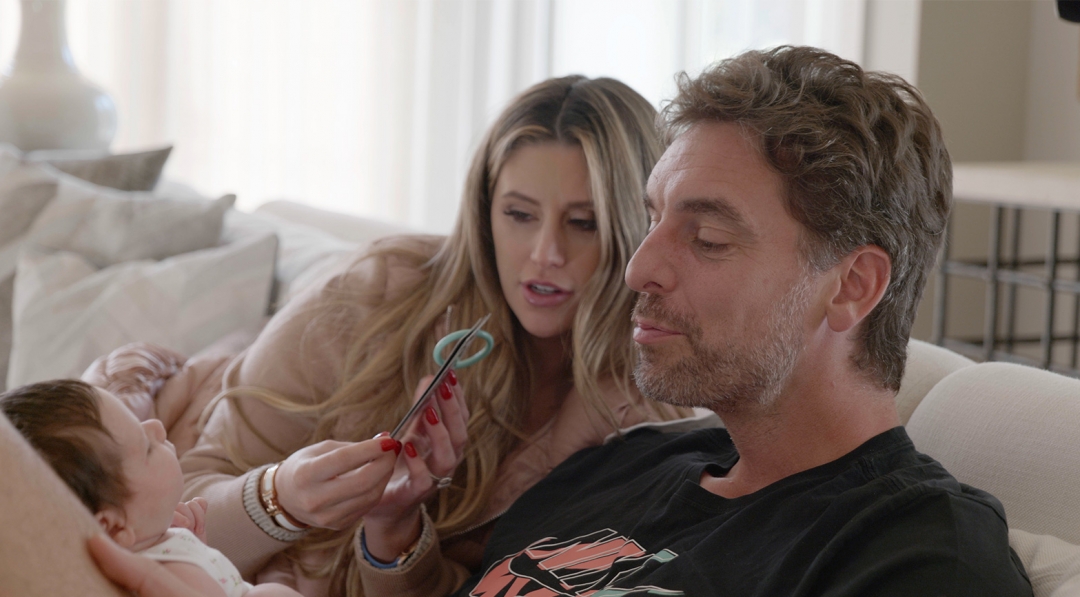
Gasol has recently become a father, a facet he wants to enjoy now that he’s retired ©Image courtesy of PG Productions LLC
Which is the message you would like to convey with your documentary?
A message of conviction, hard work, perseverance, and teamwork. The opportunities that come to you in life have a lot to do with your environment or the resources you have but, without a doubt, hard work and dedication play a fundamental role in your chances of growth and success. I would like the documentary to inspire people with the desire to improve and grow, to live life as a journey full of ups and downs, but with a constant resolve to be the best versions of themselves, with humility and generosity. Also, to encourage them to not give up and to trust that they can go further than they think if they believe in themselves and act accordingly. Beyond sports, the documentary is the story of someone who loves what he does and fights to the end to achieve things to be proud of, without letting anyone place limits on his abilities.
You always talk about the importance of enjoying the journey beyond the end result, both inside and outside of sports, why?
Because life goes by in a blink of an eye: if you don’t pay close enough attention, it passes you by. If we’re distracted by situations, things, or people that are not actually important or a priority in our lives, we can miss out on lot of lessons, experiences, and people along the way that are what really gives our existence meaning. We have to enjoy the ride and always keep our eyes wide open.
Who sets the new direction for Pau Gasol?
In my personal life, my family. My wife, my daughter, my parents, my brothers... They’re an essential part of my life. I always make sure to keep them in mind when taking decisions. Professionally, I have a team of specialists in different fields: financial and business investments, positioning, consulting, philanthropy, institutional sports... who advise me and help me strive towards my goals.
“Life goes by in a blink of an eye: if you don’t pay close enough attention, it passes you by”
Any upcoming challenges?
My next challenges will be related to philanthropy (UNICEF and the Gasol Foundation), supporting athletes (my role in IOC’s Athletes Commission and in the Consejo Asesor del Deporte Español [Spanish Sports Advisory Board], as well as other projects I’ll announce soon), and consultancy and investment in sports and wellness businesses. These are the areas where I believe I can add more value and generate a positive impact.
Lastly, any dreams left to come true?
Many! I’m very fortunate for all the sporting milestones I’ve met, and other personal fulfilments like being a father to my daughter Ellie. But in the upcoming years I hope to celebrate many more victories. One of the most important ones would be to one day help eradicate childhood obesity.
